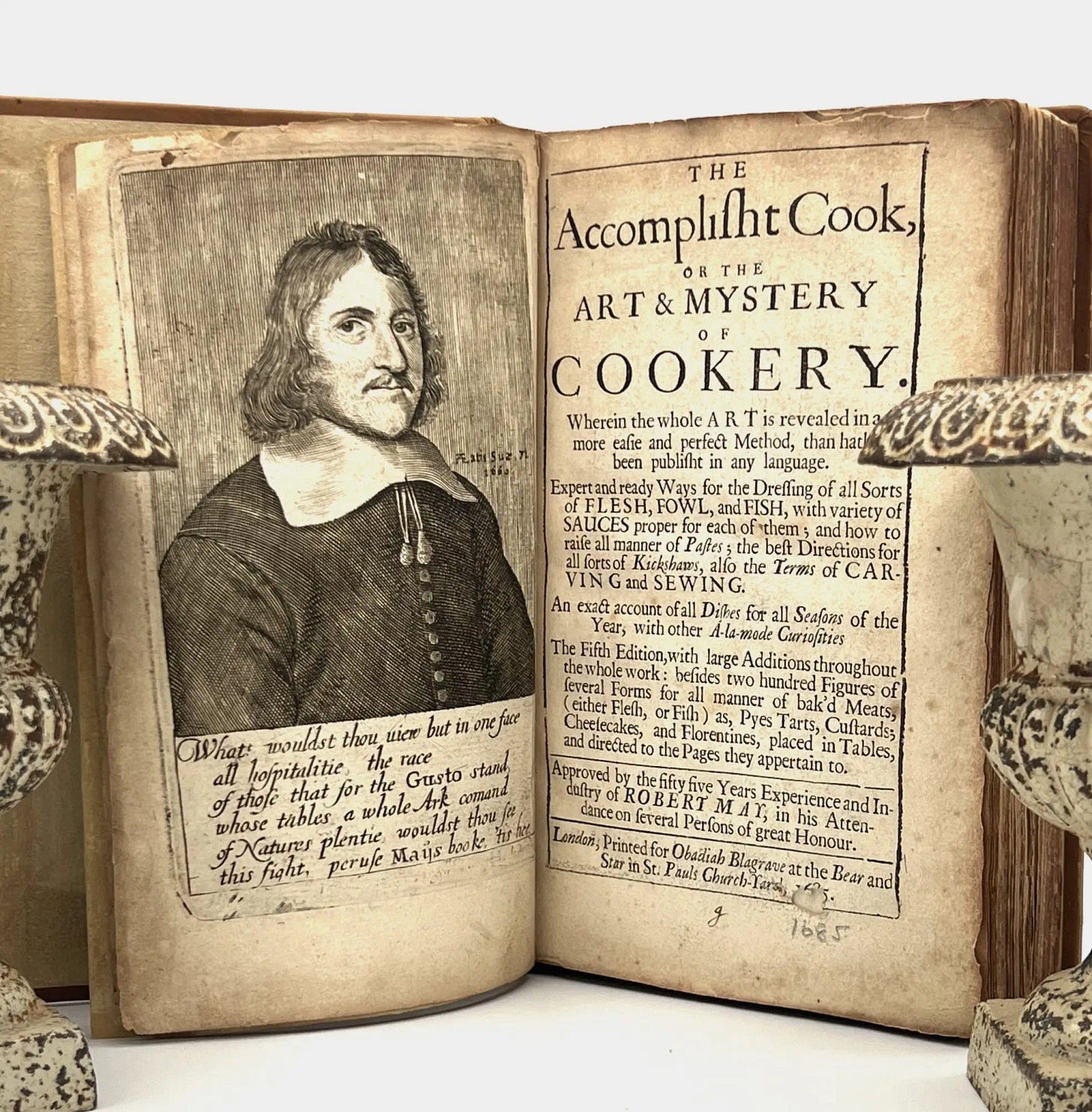Our three basic needs, for food and security and love, are so mixed and mingled and entwined that we cannot straightly think of one without the others. -M. F. K. Fisher

In this installment of my culinary memories series, we're looking at some of the social aspects of cookbook history: Something I've touched on before both in the newsletter and in pieces like this one for Mold.[i]
But we’re also exploring the cookbook as an aspirational object: Who a cookbook inspires us to be and how we aspire to be as we move through the world. Unlike our other installments, this particular essay is not actually from the exhibition materials themselves: Tt’s a new one I’ve written to give you a behind-the-scenes look into the kinds of things I think about when designing an exhibition.
One thing I find interesting about cookbook history is that it highlights longing and lack as well as abundance and the procuring and sharing of food: Cookbooks, from design and photos that are aspirational, produce longing for the food itself or the lifestyle implied within their pages. Cookbooks not only remind us what is possible to cook, they remind us of our current landscape, and the distances between the food presented and the food we're making right now. Sometimes it takes just a step or two to bridge that gulf: In the case of some books, the expanse is much more vast. Reading a book like Robert May's Accomplisht Cook is a good example: it showcased the foods and customs of aristocratic homes, serving as not only instructional document, but an aspirational one for would-be social climbers.
But on the other hand, cookbooks can also serve to highlight loss and lack: Food history in general is also the history of a lack of food, of poverty, of starvation, of the specific sort of food-related traumas and memories interwoven with foods one had to eat during times of hardship.
And this is reflected in cookbook history too:
Keep reading with a 7-day free trial
Subscribe to Root: Historic Food for the Modern World to keep reading this post and get 7 days of free access to the full post archives.




